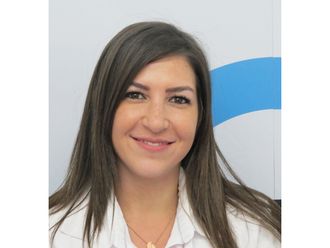In my regular habit of over-thinking things, I’ve spent too much time considering why I care about the way I look. I wonder whether it is possible to view the physical self in an objective manner. Am I really seeing what is there to be seen? How can I judge a face that I’ve known for 44 years? How can I separate my brain enough from my body to contend with what I see naked before me in the mirror?
Should a 44-year-old mum even bother to care when beauty is measured in increments of youth? Even a beautiful 44-year-old is judged as beautiful so long as she looks as if she is in her twenties.
Some might argue that George Clooney and Brad Pitt get better looking as they get older because they look more interesting. In women, “beautiful” and “interesting” often pass by each other — one going out, the other coming in — like two actresses playing younger and older versions of the same character as they walk by each other on the way to and from craft services.
I realise now that in my twenties and thirties, there were times when I was beautiful. In my forties, it seems like “inoffensive” is what I should shoot for. As much as this is a discussion about how to address my own desirability, it’s also a question of what is age-appropriate vocabulary as applied to women’s beauty. Does any woman really want to be described as “handsome”? Yet, we’re programmed to care what words are used to describe our physical selves.
So I wouldn’t describe myself as “fat”, though, in profile, my belly is convex. I had my son late in life, and of all the gifts his existence has given me, a loaf of belly fat is probably the least appreciated. Sometimes I gather it between my hands and form a bagel around my bellybutton. It’s fun. You should try it. On your own belly, I mean.
When I look at my body straight-on in the mirror, I look ten pounds too soft. If I were in a bikini at the beach, I would not elicit looks of disgust nor would I elicit any dayums or whatever men say when a woman’s body shuts down the part of the brain providing them with a sophisticated vocabulary. You see, the older I get, the harder it becomes to stay lean. It’s not enough to go to the gym four days a week and exercise in hour-long increments. The following items should be forthwith struck from my diet: burgers, ice cream, french fries, macaroni and cheese, pasta dishes, cannoli, and basically any other food deemed delicious.
But why does it matter? One can be healthy, by reasonable standards, and still be chubby. Even if I work harder and eat less, won’t I always be glanced over in favour of the 20-year-old bouncing her ... ponytail on the elliptical machine?
In the end, I find myself comparing my own better, prior physical self to my present one — I keep comparing me to me. Thus I get to the problem of ageing under my own and the world’s critical scrutiny as I approach the age when women are stuck between caring and giving up. Most days I wander around in shapeless shirts, jeans, sneakers, no make-up, ponytail and glasses. Isn’t it OK to disappear, finally, from “the gaze”? Isn’t there a bitter-sweetness to that departure?
The truth is, if I am no longer pressured to be observed, does that not free me up to do the observing instead? Sometimes it’s comfortable to just be without any expectations. I joke about becoming a giant brain propelled around by a pair of legs.
So two actresses are playing younger and older versions of the same character, and this is the moment in life when they’re passing each other on the way back and forth to craft services. The younger one is dazzling, and she can eat anything she wants from the food table. The older one is inoffensive, snacking on her carrot sticks. Something in her would like to gouge the young actress in the eye with a plastic fork and take her french fries. Something in her wants to let it all fall away.
We must admit, though, that there’s a special light in the ageing actress’s eyes, which makes her ravishingly ... interesting.
— Washington Post











